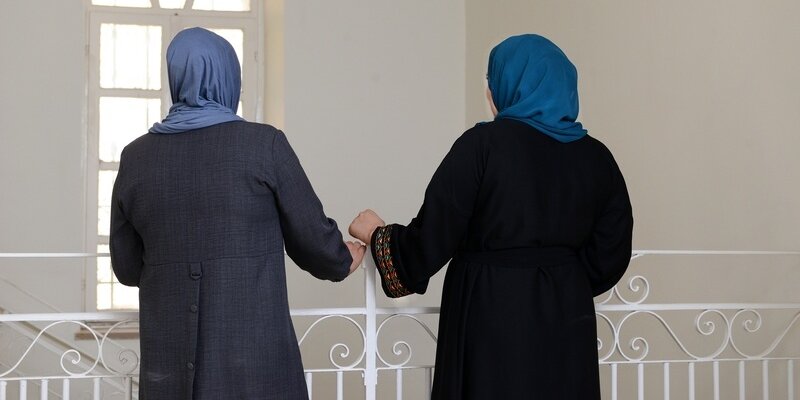Extended Exodus: Israel's Evacuees Anticipate Months of Internal Displacement, Documents Reveal
Shomrim Exclusive: The Israeli government has extended its contract with hotels, where individuals evacuated from communities along the northern border have been residing, until the end of this year. Additionally, the Mevo’ot Hahermon Regional Council is contemplating relocating six communities further south. Plans are also underway to expand schools in Korazim to accommodate evacuated children for the upcoming school year.


Shomrim Exclusive: The Israeli government has extended its contract with hotels, where individuals evacuated from communities along the northern border have been residing, until the end of this year. Additionally, the Mevo’ot Hahermon Regional Council is contemplating relocating six communities further south. Plans are also underway to expand schools in Korazim to accommodate evacuated children for the upcoming school year.

Shomrim Exclusive: The Israeli government has extended its contract with hotels, where individuals evacuated from communities along the northern border have been residing, until the end of this year. Additionally, the Mevo’ot Hahermon Regional Council is contemplating relocating six communities further south. Plans are also underway to expand schools in Korazim to accommodate evacuated children for the upcoming school year.
A child’s room in a home that was hit by a missile in Shlomi, on the Israel-Lebanon border. Photo: Reuters

Shuki Sadeh
May 12, 2024
Summary


Listen to a Dynamic Summary of the Article
Created using NotebookLM AI tool
Some two months ago, members of the Conflict Zone Forum, an umbrella association representing communities on the northern border, presented Prime Minister Benjamin Netanyahu with a public deadline. They demanded that people evacuated from communities in the north be allowed to return to their homes by September 1 – the day on which the new school year is due to commence. Little wonder, then, that these internal refugees were fuming when Channel 12 News revealed that, during a recent cabinet meeting, Netanyahu rhetorically asked Benny Gantz “Who said that September 1st is the target date?” Their anger was exacerbated still further by another report on the same channel, according to which Netanyahu had scolded Gantz and Gadi Eizenkot for “making such a big deal of it.”
“Statements of this kind are hugely damaging,” says Orit Prague, a member of Kibbutz Dafna in the Upper Galilee, who has been organizing dialogue circles with residents and kibbutz members about the current situation. “It really pulled the rug out from under our feet, because the trend was to recruit all the communities in the regional council to start returning at the end of July and that by September it would be a fait accompli.”

“Statements of this kind are hugely damaging,” says Orit Prague, a member of Kibbutz Dafna in the Upper Galilee. “It really pulled the rug out from under our feet."
A Shomrim investigation, being published here for the first time, reveals that Netanyahu’s comments did not come out of nowhere. On May 7th, the Exemptions Committee in the Finance Ministry approved a request from the Tourism Ministry to issue a 2.1-billion-shekel ($560 million) exemption from tender for hotels housing evacuees from the northern communities from June 1st to December 31st. According to the documents submitted to the Exemptions Committee, a previous contract with the hotels, covering the period up to the end of July and worth 3.6 billion shekels ($1 billion), was signed in January without a tender. In other words – the government is planning to spend 5.7 billion shekels ($1.5 billion) on accommodation for evacuees by the end of 2024.
A further indication that children from communities in northern Israel will not start the next school year while living in their homes came in another request to be exempted from issuing a tender. This request came from the Prime Minister's Office more than three months ago. The PMO sought to extend the tender-free contract it had signed with various hotels, where state employees who were helping the evacuees or needed to attend meetings in Tel Aviv could stay. The request was not for additional funding, rather to utilize funding that had already been allocated – but the government needed an extension of the time period, which was due to expire at the end of February.
In this case, too, the request was granted and the exemption period was extended until the end of this year.

According to the documents submitted to the Exemptions Committee, a previous contract with the hotels, covering the period up to the end of July and worth 3.6 billion shekels ($1 billion), was signed in January without a tender.
The Education System Also Isn’t Counting On Going Home
Last month, Shomrim revealed that the Mateh Asher Regional Council, in the western Galilee, has drawn up plans to relocate evacuees from the northernmost communities in its jurisdiction – such as Hanita and Rosh Hanikra, which are right on the Lebanon border – to kibbutzim located further south in the council’s jurisdiction. It has now become evident that Mateh Asher is not alone. Shomrim can reveal that the Mevo’ot Hahermon Regional Council is considering a similar plan. There are six moshavim in the council’s jurisdiction which are located on the northern border – Beit Hillel, She’ar Yashuv, Yuval, Margaliot, Dishon and Ramot Naftali – and seven moshavim and communities located further south, between the Lake of Galilee and the Yesud Hama’ala region. “We are working on that idea, but we have not yet carried out surveys of residents in the communities that will absorb evacuees,” council head Beni Ben Muvhar told Shomrim. “At the moment, it’s more important to figure out where children will start the next school year.”

Where indeed? The school in Korazim, which is in the southern part of the council’s jurisdiction, and which served children from across the region since they were evacuated from their homes in October, will be expanded to make room for more students, who have been studying elsewhere over the past seven months.
Indeed, an examination of the education system reveals that the state is already thinking far beyond September 1st. As far back as March 21st, Shomrim revealed that the Education Ministry has identified land in the Tzahar Industrial Park near Rosh Pina for students from the Har V’Guy high school on Kibbutz Dafna in the Upper Galilee – a plan that is now picking up speed with structures previously used as factories being converted for use as classrooms. These renovations are part of a process whereby 10 schools will be opened for child evacuees in the north – at a cost of 100 million shekels ($27 million) to renovate or convert buildings.
Similarly, Shomrim’s research reveals that one of the kibbutzim in the southern part of the Mateh Asher Regional Council recently approved the construction of two kindergartens for evacuees. Another kibbutz in the same region, Kibbutz Afek, has drawn up plans for the construction of two regional schools for children evacuated from Shlomi. In addition, the independent Israeli website Hamakom Hachi Ham Bagehinom (“The Hottest Place in Hell”) revealed last weekend that two kibbutzim in the Mateh Asher Regional Council – Kibbutz Lohamei HaGeta’ot and Kibbutz Ein Hamifratz – are currently converting buildings used as laundries to classrooms for middle-school students.
Shomrim will continue to report on developments.













